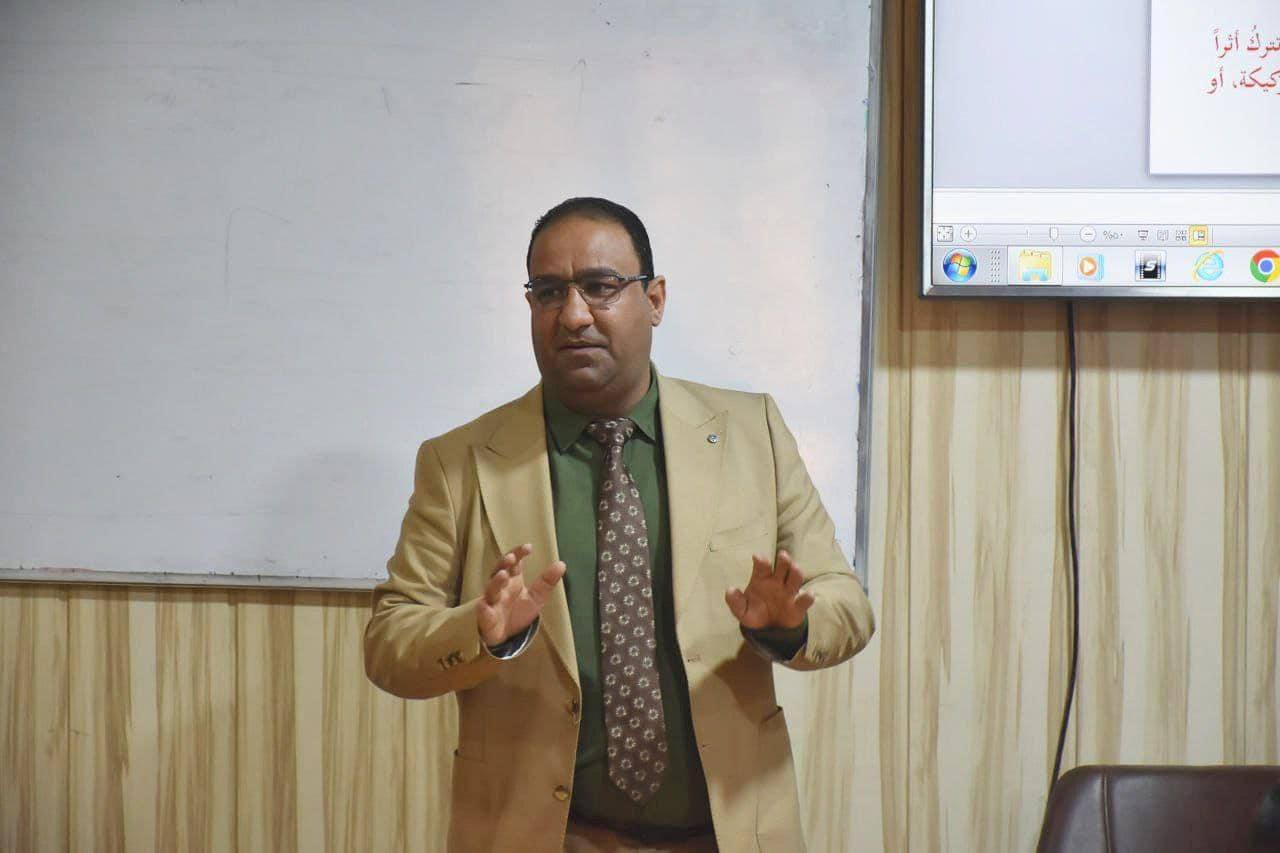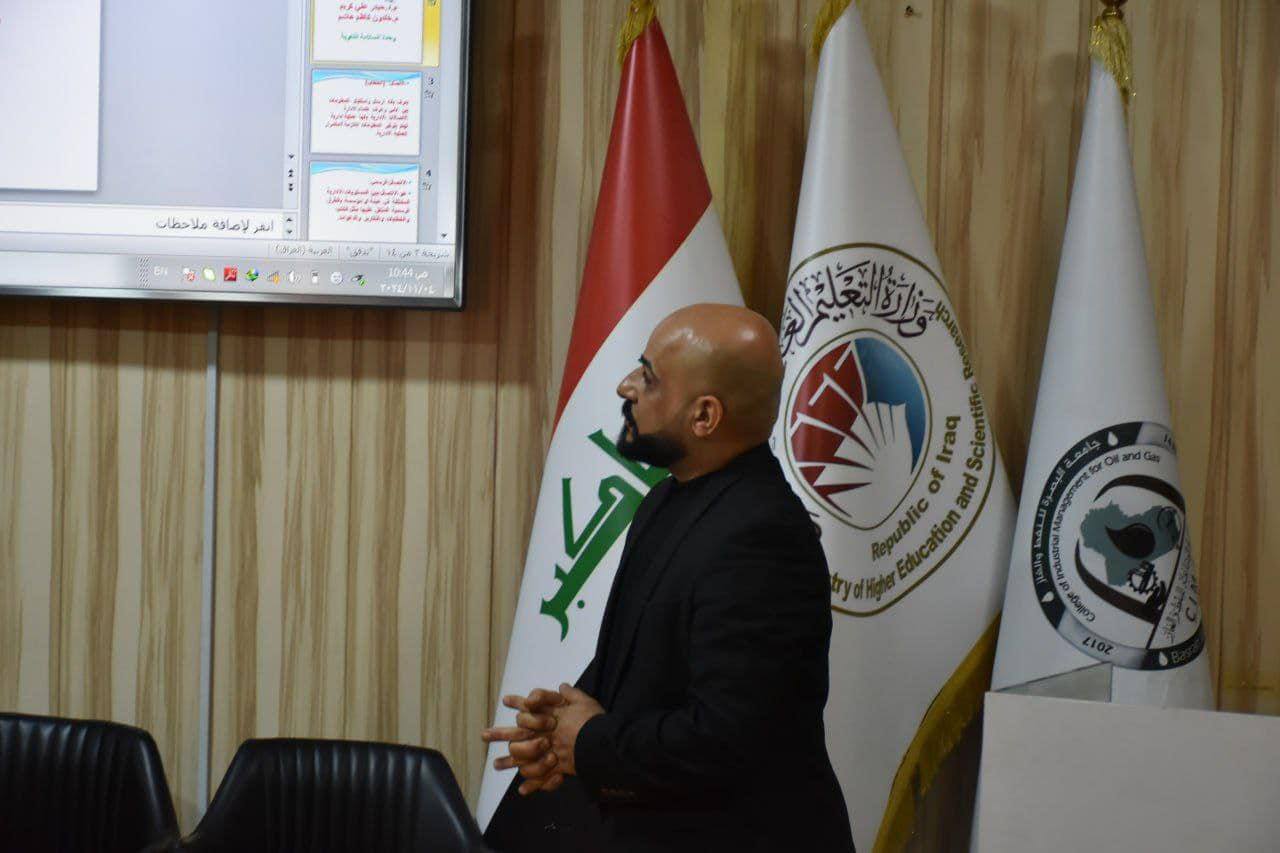.jpg)
Continuing Education Division and Linguistic Safety Unit at Basra University for Oil and Gas, in cooperation with Continuing Education Unit at College of Industrial Management for Oil and Gas, organized a training workshop entitled (The Importance of the Safety of Arabic Language in Official Correspondence) on Monday 4/11/2024.
The workshop was attended by the Administrative Assistant, Dr. Haider Ali Al-Asadi, and the Head of the Linguistic Safety Unit, Lecturer Khaldoun Kazim Hashim, under the patronage of the President of Basra University for Oil and Gas, Professor Dr. Muhammad Halil Hafez Al-Kaabi, and under the supervision of the Dean of the College, Professor Dr. Sami Obaid Al-Tamimi, in the presence of the Scientific Assistant at the University, Professor Dr. Ammar Kazim Al-Baaj, and the Administrative Assistant, Dr. Naseef Jassim Al-Abbadi.
The lecturer explained the reasons for the entry of many foreign terms and words into the Arabic language and how to differentiate between the letters and the importance of avoiding common mistakes in Official books. They stressed the role of the language proofreader in following up on the editing of official letters and the importance of following the communication contexts in correspondence in terms of administrative levels and the importance of using nice, brief and clear phrases in formulating any official draft with a focus on the most important formal matters in official letters and documents in a way that enhances the true culture of our language that represents our Arab and Islamic identity and consolidates.
The idea of pride in the language by developing the skills of all those working in the field of editing official correspondence. At the end of the workshop, they listened to the attendees’ comments and questions that focused on monitoring the most common mistakes in official correspondence.

